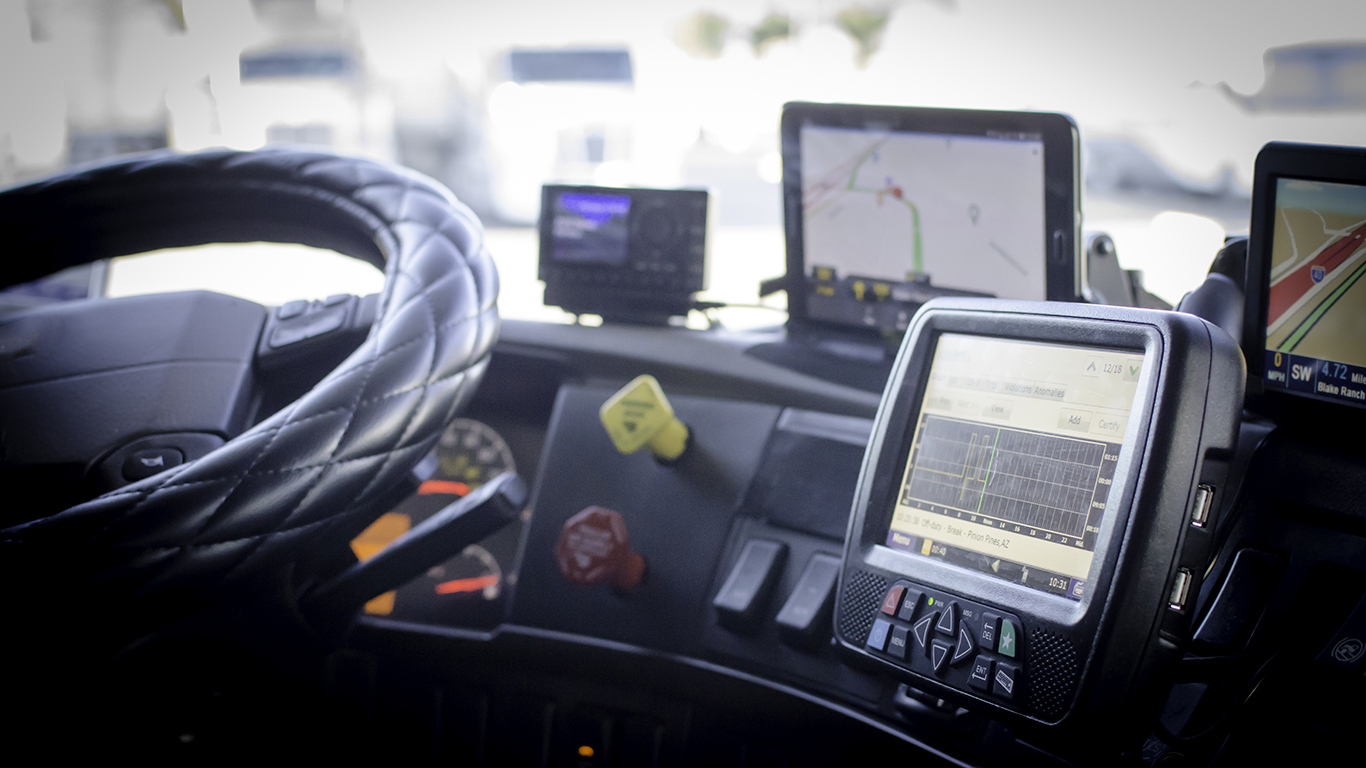What Is An ELD?
ELD stands for Electronic Logging Device. In the field of fleet management, truck drivers record their status on duty in a logbook. With a few exceptions, commercial drivers are now required to electronically document their hours of service (HOS) as of December 18, 2017, under the ELD requirement. Besides recording HOS rules, ELDs can also record:
- real-time GPS location
- Engine load and speed
- Idling, fuel economy, and vehicle mileage
- fault codes and diagnostics
- Events involving safety, such as abrupt brakes or crashes
Fleet managers may more easily manage compliance, vehicle maintenance, safety, dispatching, and routing thanks to these functionalities.
Why Is Maintaining A Logbook Crucial? Or What is an ElectronicLogBook Review?
The Federal Motor Carrier Safety Administration (FMCSA) has set restrictions on how much time truckers can spend driving. Regulated hours of service (HOS) are the name for this restriction. To keep track of their on-duty hours, drivers are required to keep logbooks. For each 24-hour period, drivers are required to record their working hours, duty status, and rest breaks.
DOT roadside inspectors have the authority to pull over drivers at any moment. For the preceding seven days in a row, drivers must have their records of duty status (RODs) on hand. Fines and infractions may come from failing to keep the logs for the preceding seven days in order or from faulty logbook record-keeping.
Benefits Of ELD Compliance:
- Increasing Safety: Everyone on the road is safer because computerized logs assist drivers maintain HOS compliance. Less accidents occur as a result of drivers taking breaks and getting the rest they need to be awake and focused while driving.
- Increasing CSA Score: The Compliance, Safety, and Accountability (CSA) score is a crucial fleet measure since clients can look at it before choosing to engage with you. Businesses may comply with regulations and prevent infractions by maintaining consistent logging, which lowers their score.
- Potentially Reduced Insurance Costs: CSA ratings are frequently used to determine insurance costs. Thus, by lowering dangerous behaviours with the use of an ELD and continuous HOS tracking, businesses may minimize their insurance costs because they are now less liable.
What exactly does an ELD record?
For each 24-hour period, the hours of service and status of the driver are recorded in logbooks. The daily pressing of a few buttons on an ELD can assist in accomplishing this automatically. However, the information below is useful if you ever need to complete a paper log or want to know what data is logged:
- Date and time of day’s beginning: The hour when the day starts.
- Driver’s name: Include any co-drivers if they are sharing driving responsibilities.
- The corporate address of the motor carrier is where the main office is located. Spell out city names, but shorten state names.
- If you operate out of a location other than the main office, your home terminal address is that location. Spell out city names, but shorten state names.
- Cities of departure and arrival: Make a note of where you began and concluded each day.
- The entire daily mileage log may be requested in some logs. Some people could inquire about your day’s starting and ending mileage. Even if there were changes, you should record this information for each car you drove that day.
- Driver status information: There are four duty statuses: off-duty, sleeper berth, driving, and on-duty (not driving).
- Total hours worked for each driver status: Add up the number of hours in each duty status. They must equal 24 hours.
- Breakdowns and accidents: Document these at the appropriate time along with the city and state the incident happened.
- Other remarks or annotations if needed. Depending on the carrier, this may not be necessary. Some carriers may want to know specific details about the day.
So, go for Electronic Log Book Review and be complaint when on road.

